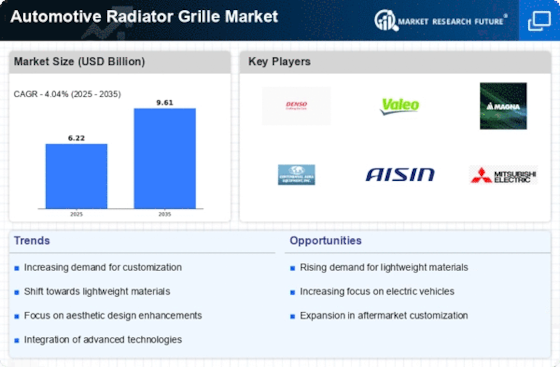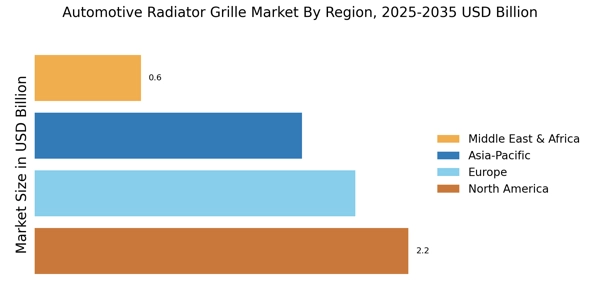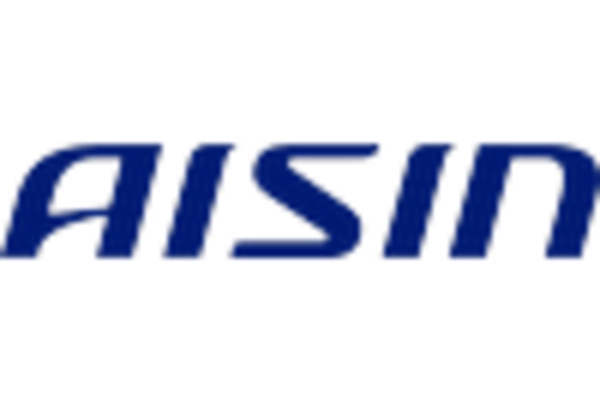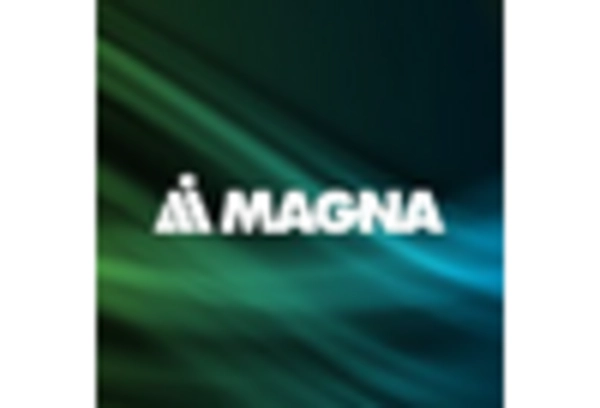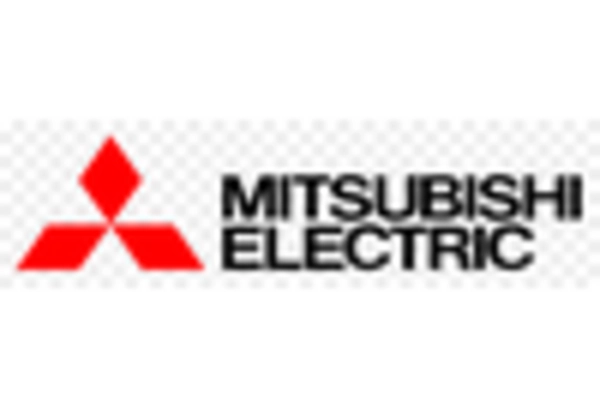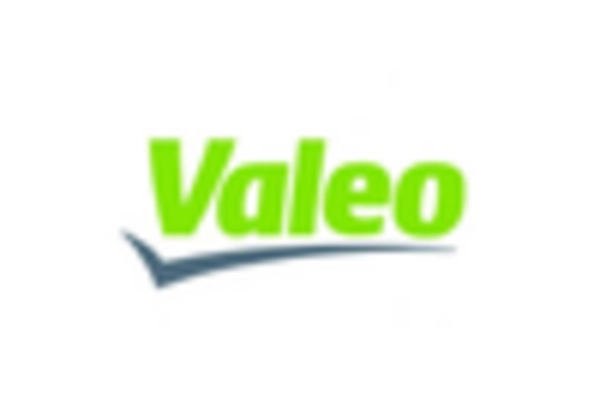Focus on Aesthetic Appeal
In the Automotive Radiator Grille Market, the emphasis on aesthetic appeal is becoming increasingly pronounced. Consumers are not only looking for functionality but also for designs that enhance the visual attractiveness of their vehicles. Grilles serve as a focal point in vehicle design, and manufacturers are investing in innovative designs and materials to cater to this demand. The market for decorative grilles is projected to grow, with a significant portion of consumers willing to pay a premium for unique and stylish designs. This trend suggests that the Automotive Radiator Grille Market will continue to evolve, with manufacturers focusing on aesthetics alongside performance.
Rising Vehicle Production
The Automotive Radiator Grille Market is experiencing growth due to the increasing production of vehicles worldwide. As manufacturers ramp up production to meet consumer demand, the need for various components, including radiator grilles, rises correspondingly. In 2025, vehicle production is projected to reach approximately 90 million units, which indicates a robust demand for automotive parts. This surge in production is driven by factors such as urbanization, rising disposable incomes, and a growing preference for personal vehicles. Consequently, the Automotive Radiator Grille Market is likely to benefit from this upward trend, as more vehicles necessitate the incorporation of high-quality grilles that enhance both aesthetics and functionality.
Technological Innovations
Technological advancements are playing a pivotal role in shaping the Automotive Radiator Grille Market. Innovations such as the integration of active grille shutters, which optimize airflow and improve fuel efficiency, are becoming more prevalent. These technologies not only enhance vehicle performance but also align with the growing emphasis on sustainability. As automakers increasingly adopt these innovations, the demand for advanced radiator grilles is expected to rise. The market is likely to see a shift towards grilles that incorporate smart technologies, which could further drive growth in the Automotive Radiator Grille Market.
Growth of Electric Vehicles
The rise of electric vehicles (EVs) is significantly impacting the Automotive Radiator Grille Market. As the automotive landscape shifts towards electrification, the design and functionality of grilles are evolving. While traditional internal combustion engine vehicles require grilles for cooling, EVs may utilize grilles differently, focusing on aerodynamics and aesthetics. This transition presents both challenges and opportunities for manufacturers. The Automotive Radiator Grille Market must adapt to these changes, potentially leading to the development of new grille designs that cater specifically to the needs of electric vehicles, thereby expanding the market.
Regulatory Compliance and Safety Standards
The Automotive Radiator Grille Market is influenced by stringent regulatory compliance and safety standards imposed by governments. These regulations often dictate the materials and designs that can be used in vehicle components, including grilles. As manufacturers strive to meet these standards, there is a growing demand for grilles that not only comply with safety regulations but also enhance vehicle performance. This compliance is crucial for market players, as non-compliance can lead to significant penalties and loss of market share. Therefore, the Automotive Radiator Grille Market is likely to see an increase in demand for compliant and high-performance grilles.


